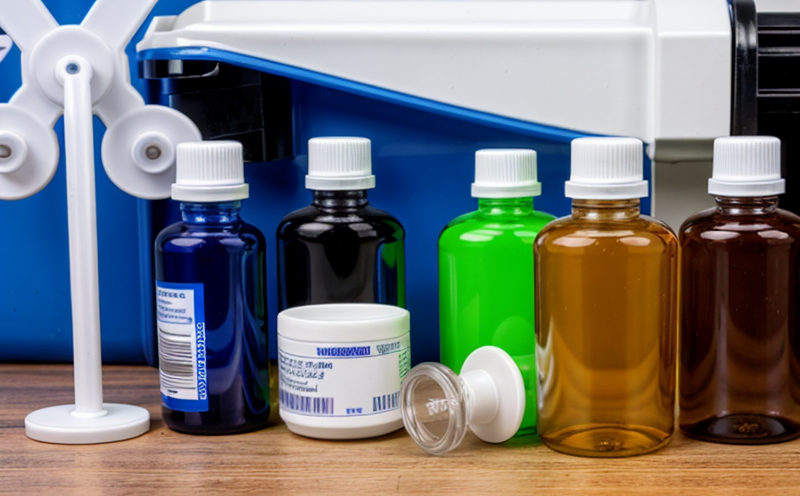EN 16223 Boron in Pharmaceutical Waste
The European standard EN 16223 provides a comprehensive method for determining the concentration of boron in pharmaceutical waste. This test is crucial for ensuring compliance with environmental regulations and safeguarding public health by minimizing the release of hazardous substances into the environment.
Pharmaceutical waste can contain various hazardous components, including boron, which can have harmful effects on ecosystems if not properly managed. Boron is a naturally occurring element but excessive levels in wastewater or landfill can disrupt aquatic life and affect soil quality. This standard therefore plays an important role in the sustainable management of pharmaceutical waste.
The test method described in EN 16223 involves several steps, including sample collection, preparation, digestion using strong acids, and subsequent analysis by inductively coupled plasma mass spectrometry (ICP-MS). The standard specifies detailed procedures to ensure accurate and reproducible results. Compliance with this standard is essential for facilities handling pharmaceutical waste.
Our laboratory adheres strictly to the requirements of EN 16223, ensuring precision and reliability in our testing processes. By doing so, we support industries responsible for managing pharmaceutical waste by providing robust data that can inform necessary actions to reduce environmental impact.
The standard also emphasizes the importance of quality assurance and quality control measures throughout the testing process. This includes the use of certified reference materials (CRMs), inter-laboratory comparisons, and proficiency testing programs. These practices ensure that our results are accurate, reliable, and comparable across different laboratories.
In conclusion, EN 16223 is a vital tool for managing pharmaceutical waste responsibly. It not only helps in identifying the presence of boron but also supports broader environmental protection efforts by providing actionable data to facilities dealing with this type of waste.
Why It Matters
The issue of hazardous substances, particularly boron, in pharmaceutical waste is a significant concern for both healthcare providers and regulators. Boron can leach into soil and water bodies from landfills or during treatment processes, posing risks to human health and the environment.
Environmental Impact: High levels of boron in aquatic systems can lead to toxicity in fish and other aquatic organisms, affecting biodiversity and ecosystem balance.
Health Risks: Chronic exposure to excessive boron levels has been linked to various health issues including reproductive disorders, cardiovascular diseases, and neurological impairments.
Regulatory Compliance: Non-compliance with environmental standards can lead to legal penalties and reputational damage for organizations involved in the production or disposal of pharmaceutical waste.
By adhering to EN 16223, facilities ensure that their operations meet stringent international standards, thereby contributing to sustainable waste management practices and protecting public health.
Eurolab Advantages
Eurolab is committed to delivering high-quality testing services that are tailored to the needs of our clients. Our expertise in waste management and recycling, combined with state-of-the-art facilities, allows us to provide accurate and reliable results for EN 16223 compliance.
Accurate & Reliable Results: We use advanced analytical techniques like ICP-MS that are capable of detecting even trace amounts of boron in complex matrices.
Dedicated Specialists: Our team includes experts with extensive experience in environmental testing, ensuring consistent quality and precision.
Comprehensive Reporting: In addition to numerical results, we provide detailed reports that interpret findings within the broader context of waste management practices.
Supporting Documentation: We offer comprehensive documentation that can be easily integrated into your compliance files, simplifying audit processes for you.
We are also ISO/IEC 17025 accredited, ensuring our methodologies and equipment meet the highest industry standards. This accreditation reflects our commitment to excellence in analytical testing.
Why Choose This Test
Compliance with International Standards: EN 16223 is widely recognized for its accuracy and reliability, making it an ideal choice for ensuring compliance.
Environmental Protection: By identifying boron levels in pharmaceutical waste, this test helps minimize environmental impact.
Risk Management: Knowing the exact concentration of boron allows facilities to implement effective risk mitigation strategies.
Data-driven Decision Making: Accurate data from EN 16223 enables informed decisions regarding waste treatment and disposal methods.
Cost Efficiency: Early detection of problematic levels can prevent costly remediation efforts later on.
Reputation Enhancement: Demonstrating adherence to international standards enhances your organization's reputation as a responsible steward of the environment.
In summary, choosing this test not only ensures regulatory compliance but also contributes positively to environmental sustainability and corporate responsibility.





